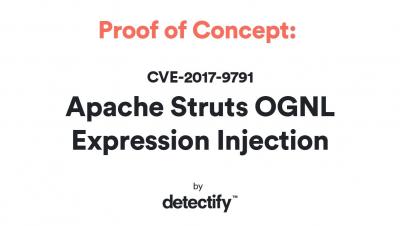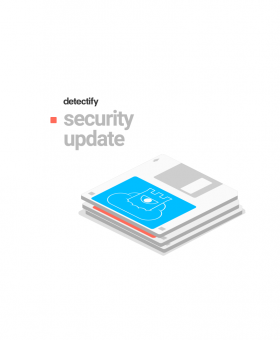Security | Threat Detection | Cyberattacks | DevSecOps | Compliance
March 2019
Apache Struts Vulnerabilities
Apache Struts is a well-known development framework for Java-based web applications that is mostly used in enterprise environments. If you search for Apache Struts CVEs on MITRE, you currently get 77 results, and most of the critical ones are due to OGNL expression injection, which is very similar to SSTI (Server Side Template Injection) attacks. In this article we will go through the security history of Apache Struts, common Apache Struts security issues and the impact of these vulnerabilities.
Detectify opens US office in Boston to accelerate growth
Stockholm, Sweden & Boston, MA – Detectify, a Swedish domain and web application security company, is launching its US operations in Boston, Massachussets. The company achieved 3x revenue growth in 2018 and the launch of the Boston office will further accelerate growth in the US market.
What are the different types of XSS?
Cross-site scripting (XSS) is a common vulnerability that is carried out when an attacker injects malicious JavaScript into a website, which then targets the website’s visitors. By doing so, the attacker may gain access to users’ cookies, sensitive user information, as well as view and/or manipulate the content that is shown to the user. This is not another article explaining what XSS is, why it is a security issue and how to fix it because we have already covered that.
Meet the Hacker: EdOverflow, motivated by community and knowledge sharing
EdOverflow is known for contributing a bunch of stuff: active in the community, one of the people behind security.txt – a standard for structuring responsible disclosures, bug bounty hunter and a member of Detectify Crowdsource. We got a chance to quiz him about security.txt, his motivates for being involved with hacking communities and why he chooses to report to responsible disclosure programs without bounty rewards.
Serverless vs Cloud vs On-prem
Server architecture can differ in a lot of ways, but the three main categories would be on-prem, cloud and serverless. Some believe that cloud and serverless can be used interchangeably, which is not the case. To help clear up some confusion, this blog post will explain each of them and how it affects the security work.
Detectify security updates for 7 March
For continuous coverage, we push out major Detectify security updates every two weeks, keeping our tool up-to-date with new findings, features and improvements sourced from our security researchers and Crowdsource ethical hacker community. Due to confidentially agreements, we cannot publicize all security update releases here but they are immediately added to our scanner and available to all users. This post highlights a few things that we have improved in the last two weeks.
Integrating Detectify into your workflow
In the modern workplace, the work environment consists of many different teams, frameworks and tools to tackle complicated issues. It can be overwhelming to handle all the information transferred or continuously log into different tools to gather information. This is why Detectify offers 8 different software integrations, which sends web application vulnerability alerts from Detectify into your existing workflows or digital workplaces.










